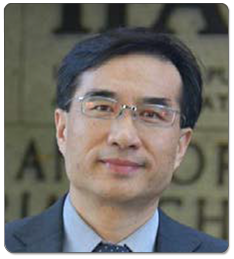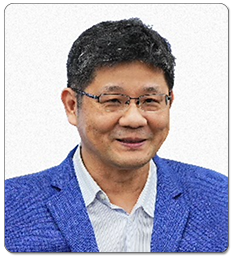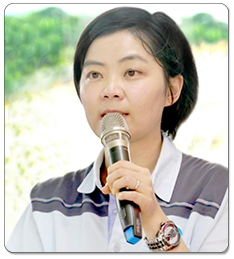9/10(Tue.) pm2:00~5:00
Moderator

Deputy Director General, Water Resources Agency, Ministry of Economic Affairs
Yuan-Peng Lin
Lin becomes Deputy Director General of Water Resources Agency since 2023. He is dedicated to implementing projects of water resources development and management, construction of flood prevention, water work facility operation and management, rehabilitation and safety assessment of reservoir, water resources allocation during drought, and water supply.

Chief Secretary, National Cheng-Kung University
Wei-Cheng Lo
Dr. Lo is currently Distinguished Professor of Hydraulic and Ocean Engineering, National Cheng Kung University, having joined the Department in 2005 after his PhD from the University of California, Berkeley. His research interests include inundation computation, subsidence modeling, and his specialty is theoretical and computational subsurface hydrology, geomechanics, and geosciences. Professor Lo’ research has been recognized through prestigious appointments at numerous government advisory bords, such as convener of the Flooding Group of Disaster Prevention and Protection Expert Advisory Committee, the Executive Yuan, He serves as associate editor of two leading journals in his field, Journal of Hydrology and Advances in Water Resources.
Keynote Speech

Civil Engineer, Concrete and Structural Laboratory, Bureau of Reclamation
Matthew Klein
Matthew Klein received his B.S.E. in Civil Engineering from Walla Walla University and M.S and Ph.D. also in Civil Engineering from Rutgers University. Klein’s research focuses specifically on classification and detection of concrete deterioration mechanisms using state-of-the-art technology including Uncrewed Aircraft Systems (UAS), 3D modeling, artificial intelligence, virtual reality, and digital image correlation.
Klein holds testing and inspection certifications from the American Concrete Institute and Federal Highways Administration. He is also a Federal Aviation Administration certified commercial UAS pilot logging over 100 hours operating UAS for data collection at nearly 30 projects within the Bureau of Reclamation.
The title of speech
Unmanned Aircraft System (UAS) Non-Destructive Inspection of Hydraulic Concrete Structures
Short abstract of speech
Unmanned Aircraft Systems (UAS) or drones have been leveraged by the Bureau of Reclamation since 2017 for high-resolution data collection of the interior and exterior of concrete hydraulic structures. The data is used to generate highly accurate 3D models used for condition assessments of the structures.
This presentation focuses on the equipment used, flight and project planning, data processing, and data analysis of more recent projects as well as sharing future applications of the technology.

Construction Engineering Research Laboratory
Brian Eick
Dr. Brian Eick is the member of the Construction Engineering Research Laboratory. He is a subject-matter expert on behavior and lifecycle analysis of large-scale, water-resources infrastructure such as locks and dams, and is the author of dozens of scholarly articles, technical reports, and conference proceedings. In his current role, he leads a multidisciplinary team in the development and implementation of technologies to remotely inspect, assess the condition, and estimate the remaining life of large-scale infrastructure.
The title of speech
Structural Health Monitoring of Water Resources Infrastructure
Short abstract of speech
Water resources infrastructure is comprised of the system of dams, inland waterways, levees, etc., which are crucial to our economy, public safety, and the preservation of the environment. This infrastructure supports the transportation of billions of dollars in goods annually via waterborne/riverway transportation, protects property and life-safety via flood prevention, provides efficient renewable energy via hydropower facilities, and provides drinking and irrigation water through storage reservoirs. Thus, maintaining the operability of this infrastructure is of significant importance. Traditional visual inspection of this infrastructure to determine condition and identify critical maintenance needs is difficult and expensive due to inaccessibility and/or submersion in water, leading to continued operation of the infrastructure with limited, dated, and often very subjective information regarding condition.
The economic importance of water resources infrastructure, coupled with the difficulty of inspection, has led to a desire amongst many asset managers to consider alternate methods to obtain actionable information, reduce maintenance costs, and prevent catastrophic failures. Structural Health Monitoring (SHM) is an approach to asset management and condition assessment that is used to provide continuous, near real-time, actionable information on infrastructure condition. SHM relies on the regular collection of data from sensor systems installed on a structure. These sensors collect data that is processed via artificial-intelligence and machine learning (AI/ML) and compared against physics-based computational models of the structure being monitored to automatically assess structural condition. Ultimately, SHM tools are used to identify and localize critical maintenance needs, assess likelihood of damage, and provide a probabilistic assessment of remaining life of an asset. In this talk, Dr. Eick will discuss SHM, the application of SHM to water resources infrastructure, and provide an overview of some of the advancements his research group has made towards development and implementation of SHM technologies tailored specifically toward water resources infrastructure.

Dean of the College of Engineering, National Yang Ming Chiao Tung University
Chih-Ping Lin
Dr. Chih-Ping Lin is currently a Distinguished Professor of Civil Engineering, Dean of the Engineering College, and Director of the Disaster Prevention and Water Environment Research Center at National Yang Ming Chiao Tung University (NYCU), Taiwan. His primary research interests are engineering monitoring based on electromagnetic waveguide and developments and applications of near-surface geophysics for solving geotechnical, geo-environmental, and water resources-related problems, such as quality inspection of ground improvement, landslide monitoring, subsurface imaging of soil moisture, investigation of soil and groundwater contamination, non-destructive evaluation and monitoring of dam safety, and suspended sediment monitoring in rivers and reservoirs.
The title of speech
Dam Inspection/Monitoring & Fully Grout Piezometer Technique
Short abstract of speech
There is a growing demand for using non-destructive geophysical techniques to internally image dam condition and facilitate the early detection of anomalous phenomena. The first part of the speech introduces newer applications of engineering geophysics during construction phase, dam safety assessment, and sustainable management, including quality control of compacted soils, investigation of abnormal leakage in an earth dam, evaluation of an aged concrete dam, geophysical health monitoring for a newly-constructed dam, and monitoring of sediment transport for sediment management. The applications were presented with more emphases on the needs of dam engineering and adapting appropriate geophysical methods to make assessment more effective and consequential.
Piezometer is one of the most common instrumentation and required in dam safety monitoring. Many piezometers in Taiwan are currently damaged. Reconstructing piezometers on exiting dams has always raised safety concern. The second part of the speech presents recent evaluation and validation of the relatively new technique, which can be adopted in dam monitoring for safer, more efficient, and more reliable piezometer installation.

Senior Engineer, Southern Region Water Resources Branch, Water Resources Agency
Hsuan-Mei Hsiao
Ms. Hsiao got her master degree of science from the National Taiwan University in 2009 and became a government employee of the Water Resources Agency in 2010. While she was in Nouthern Region Water Resources Branch, she had been working on water resources management and drought emergency response. She transferred to Southern Region Water Resources Branch in 2013, and now she focuses on reservoir safety assessment, reservoir risk analysis, modification of reservoir operation directions and gate operation rules.
The title of speech
Advances In Reservoir Safety Management
Short abstract of speech
Traditional reservoir safety management is carried out through visual inspection and instrument monitoring, which is easily limited by manpower and funds, affecting the frequency of inspection and monitoring. Moreover, most of the information collected is a single point of information, making it difficult to grasp the overall safety status of the facility. In recent years, reservoirs in Taiwan have gradually introduced automated monitoring and technological auxiliary equipment through physical equipment upgrades, such as using graphical interfaces to display reservoir status in real time, and designing automatic alarm mechanisms to allow managers to quickly grasp abnormal situations. In addition to the upgrade of hardware facilities, management measures are also simultaneously optimized, such as using virtual reality to conduct hydraulic machinery operation drills and developing and analyzing key issues through risk analysis discussions to enhance the professional abilities of reservoir managers. This sharing focuses on sharing the current advances and future plans for exchanges.